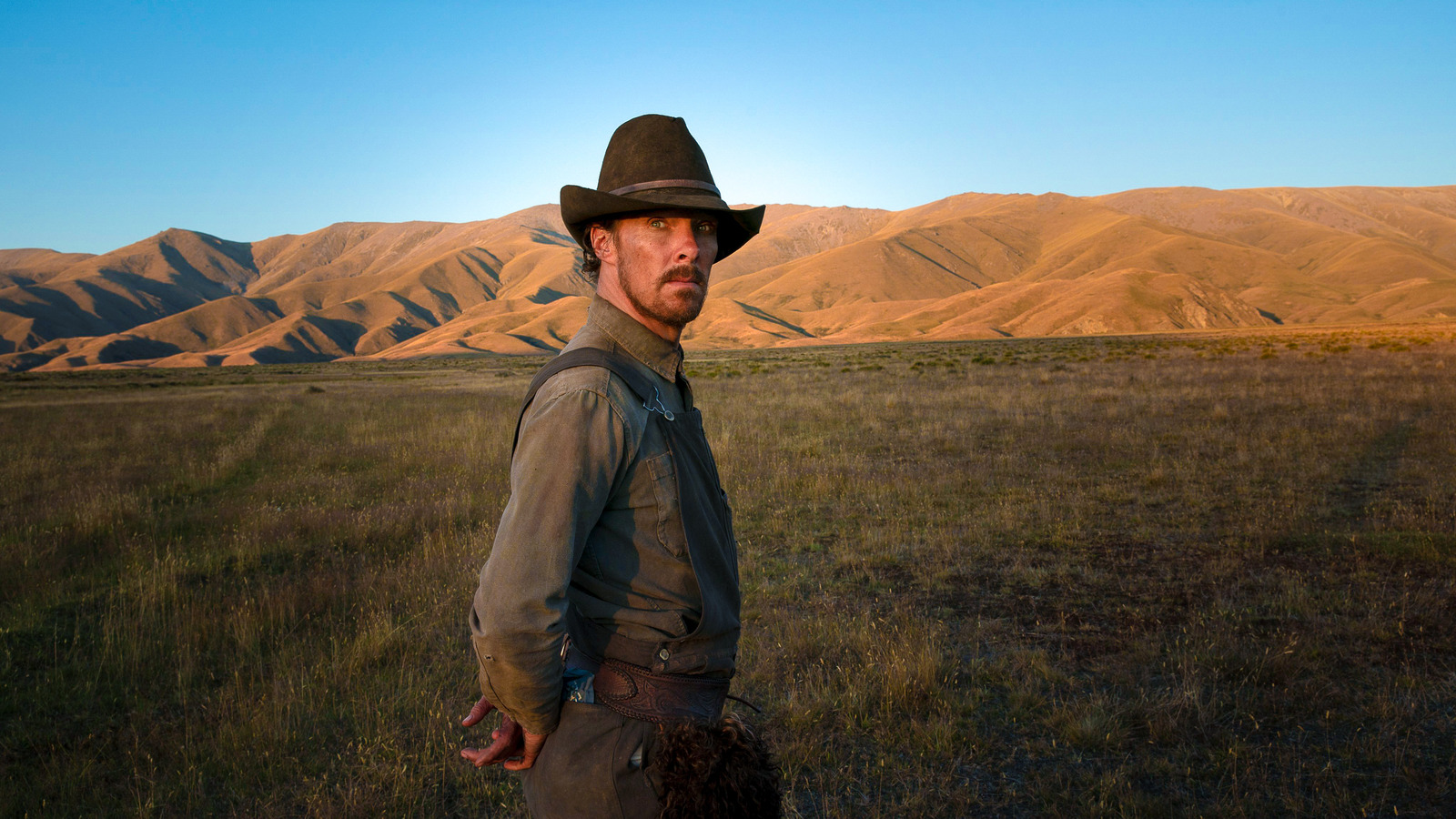
Film Review: The Power of the Dog
Film Reviews
The Power of the Dog
Director: Jane Campion
BBC Film and See-Saw Films
In Theaters: 11.17 | Streaming on Netflix: 12.01
The western genre covers a wide range of stories. If you’re going into The Power of the Dog expecting a rousing shoot-up, you’re clearly not familiar with the work of Jane Campion and you are about to either be very disappointed or you’ll be surprised and swept away.
The Power of the Dog is set in Montana in 1925. Severe, pale-eyed and handsome, Phil Burbank (Benedict Cumberbatch, The Electrical Life of Louis Wain) is a rough-and-tumble cowboy who runs a ranch with his more soft-spoken and refined brother, George (Jesse Plemons, I’m Thinking of Ending Things). One day at the Red Mill restaurant, the brothers meet the widowed proprietress Rose (Kirsten Dunst, Spider-Man, Hidden Figures, The Beguiled) and her impressionable son, Peter (Kodi Smit-McPhee, Slow West, Dawn of the Planet of the Apes). George courts and marries Rose and welcomes her and Peter to the ranch, but Phil’s controlling nature kicks into overdrive. In his fury, he taunts Rose relentlessly, emotionally abusing her in a cunning plan to destroy the relationship. His mockery of her dainty son is more overt, amplified by the cheering of Phil’s cowhand disciples. Suddenly, Phil appears to take the boy under his wing. Is this latest gesture a softening that leaves Phil exposed or a further twist into menace?
Part mystery, part character drama and part tragedy, The Power of the Dog is a powerful, spellbinding treatise on toxic masculinity, repression, anger and the desire for power and control. In her first film in 12 years, Writer-director Campion (The Piano, In The Cut) expertly crafts the intricate story (adapted from the novel by Thomas Savage). While it’s a slow burn that takes a certain amount of patience, The Power of the Dog is a beguiling, art-house western done on an impressive scale and filled with rich characterizations. Cumberbatch would be in serious danger of becoming the most overexposed actor in Hollywood if he wasn’t just so damned good at everything he does. In a year when he’s shown phenomenal range, Phil Burbank delivers arguably the most impressive performance of the lot, especially because he’s hardly the first name that comes to mind when you think “grizzled cowboy.”
Phil is both protagonist and antagonist in a story that is told in a deliberately detached manner to keep the audience guessing and analyzing. Cumberbatch has no easy task in hiding the real Phil from us while still giving us pointed glimpses into his psyche. Dunst is also excellent, and Plemons does great work, though he is sadly underused. Perhaps the most interesting performance comes from Smit-McPhee as the quiet, gangly, somewhat-effeminate Peter, the subject of so much mockery and derision by Phil and the ranch hands. Smit-McPhee is the kind of low-key actor who is so free of pretense and melodrama in his performances that he is often easily overlooked. Without him, this movie simply wouldn’t come together, and I hope he isn’t forgotten when the Oscar nominations come out. Ari Wegner’s cinematography is sublime, and the tense musical score by Radiohead’s Jonny Greenwood does an amazing job of creating weight and tension in the slower moments.
The Power of the Dog takes some time to digest, but it’s still stuck in my head almost a week later. It’s the kind of unforgettable and challenging story that we only get to see done on this kind of mini-epic scale—and with big stars attached—because Netflix is so eager to court auteurs, and this is a film that will be remembered as one of the most significant in both Cumberbatch and Campion’s impressive filmographies. –Patrick Gibbs